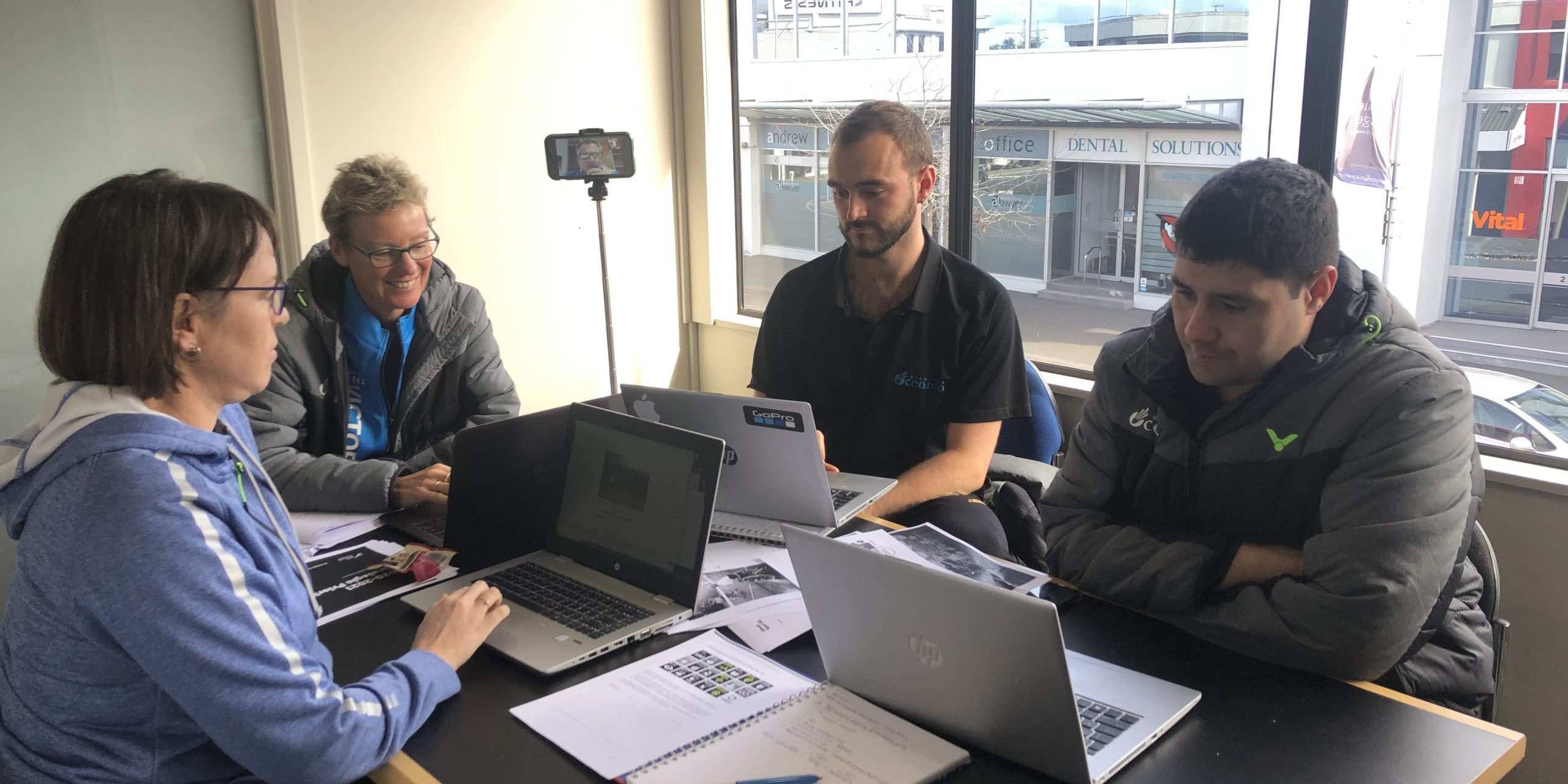Text by Sport and Dev | Badminton Oceania. Photo: Badminton Oceania staff undertaking the online course: sport and the sustainable development goals
Looking to sharpen your skills and knowledge within the sports industry?
Earlier this year, the Badminton World Federation released various online components, courses and resources on their platform which are useful for anyone wishing to work in a badminton organisation.
The areas available include Shuttle Time, Coach Education, Technical Official, Event Management and National Administrators – This programme is aimed at federations or associations looking to develop badminton within their area.
More recently, The International Platform on Sport and Development, Australian Department of Foreign Affairs and Trade (DFAT) and the Commonwealth Secretariat have collaborated to support the development of a free and online global course on sport and the sustainable development goals to help individuals and organisations harness the potential of sport in their work towards sustainable development.
With many shared values and aims to the course, the majority of staff from Badminton Oceania will be undertaking the course and they encourage anyone interested in sport for development to take part too.
With more governments and organisations around the world recognising sport as an enabler of the Sustainable Development Goals (SDGs), sport is increasingly being used as a tool to address issues ranging from health and education to employment and conflict resolution.
But, despite the increasing use of sport and growing perception of its value, individuals and organisations have limited opportunities to learn how to maximise sport’s positive impact.
Sport for Sustainable Development: Designing effective policies and programmes marks the release of the first ever, free massive open online course focused on Sport for Development.
Designed to meet the needs of a variety of learners, including government officials, intergovernmental and sports organisations, public policy experts, the private sector and civil society organisations, the course allows learners to explore aspects of programme design and, implementation, and understand how to measure the impact of policies and programmes. The course also allows learners to explore key concepts on sport and gender equality, disability, human rights, social inclusion, peacebuilding and safeguarding.
Featuring contributions from around the world, the course shares lessons learnt, best practice and top tips from policy makers and practitioners, helping learners to explore different approaches to Sport for Development from those delivering sport-centred programs on a dayto-day basis.
Recognising the important role that sport can play in promoting learning and meaningful engagement at national, regional and international levels, Fiji’s Dr. Robin Mitchell, President of the Oceania National Olympic Committee (ONOC) and Executive Board Member of the International Olympic Committee (IOC), said the course will be a vital addition to the field.
“This course provides an exciting opportunity for all those in the Pacific and around the world interested in learning how to take action and use sport to make a positive impact. In the Pacific sport is being used by governments, organisations and communities as an enabler of change. Today, more than ever, sport is becoming an important tool to support the communication of information and to teach children, young people and adults. By harnessing the positive power of sport, we have an opportunity to shape the development of ideas, opinions and actions – both at home and abroad. I would encourage anyone interested in learning how they can use sport as a tool to support the advancement of the sustainable development agenda, to sign up for this course.”
Commonwealth Secretary-General Patricia Scotland said: “The longstanding work and engagement of the Commonwealth Secretariat in support of collaboration among our member countries to develop policies and programmes on sport and development have yielded valuable perspectives and practical understanding of how life opportunities for people from all backgrounds can be improved through well-designed and adaptable strategies.
“Our focus is on extending the benefits of sport to more people, from more diverse backgrounds, more often. This course offers leaders, practitioners, and young people alike superb professional development opportunities to build their skills and develop highly effective policies and programmes which enable the potential of sport as a force for good to be realised fully and inclusively in the countries of the Commonwealth – and more widely.”
The collaboration between the International Platform on Sport and Development, the Australian Government and the Commonwealth Secretariat to develop the course is underpinned by each organisation’s focus on providing accessible opportunities for learning.
“Recognising the need to increase access to resources and educational opportunities for a wide and varied audience, this course focuses on helping learners to understand how to effectively integrate sport into policies and programmes to advance the SDGs. In an era where the faceto-face delivery of sport has been disrupted and threatened, this course helps audiences to think critically, and understand how to leverage sport, drive innovation and challenge the status-quo,” explained Gunnar Hagstrom from the Laureus Sport for Good Foundation and member of the International Platform on Sport and Development Steering Board.
For more information on the course and to sign up, click here.
The International Platform on Sport and Development, the Australian Government and Commonwealth Secretariat would like to thank all those who contributed to the development of the course, including the Expert Reference Group and the academic team.






